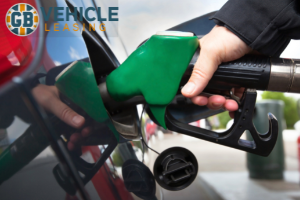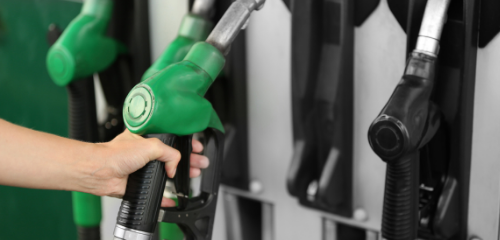
How to save fuel when driving
How to save fuel when driving
Fuel prices are on the rise and with them, the cost of living. While there are many things that you can do to save money when it comes to your food shop bill or your utility bills, it may be difficult to find ways to save on your fuel expenses. However, by following some simple tips, you can help keep your fuel tank full for longer. In this article, we will discuss some of the ways that you can save fuel.
Why is petrol so expensive?
Petrol prices in the UK have reached a record high, with a litre of fuel costing an average of £1.89. This is the highest price ever recorded in the country, and it’s becoming increasingly difficult for drivers to afford to fill up their tanks. So why are fuel prices reaching these unprecedented levels?
There are a few reasons that fuel is expensive at the moment. The main reason is that the cost of oil has gone up. Crude oil prices have been rising in recent months, partly because of production cuts by OPEC and other countries. This has pushed up the cost of petrol. Oil is used to make petrol and other fuels, so when the cost of oil goes up, the cost of fuel goes up. There are also taxes on fuel, which are used to pay for things like roads and public transport.
Another reason that fuel is expensive is that there aren't many alternatives to it. Cars and other vehicles need petrol or diesel to run, so there isn't much competition to keep the price down. Some people are trying to find new ways to power cars, but so far nothing has been found that is affordable and reliable enough for everyone.
Finally, the reason could be that taxes on fuel have gone up. Governments often increase taxes on fuel in order to raise money for things like roads and public transport. In the UK, fuel is subject to both excise duty and value-added tax (VAT), which are both levied by the government. These taxes account for around 70% of the price you pay for a litre of fuel.

How to save on fuel
In order to save on fuel, it is important to be aware of your driving habits and how they can affect your fuel economy. Here are some tips to help you save on fuel:
Drive the speed limit
If you're familiar with the terms "economy," "efficiency," and "fuel efficiency," then you're aware that driving at the speed limit is one way to save fuel. When you drive below the speed limit, your car uses less fuel because it's working less hard to move. To minimize your environmental impact, try to follow the advice of experts and stay within the speed limit whenever possible.
This is particularly important in motorway driving, the Department for Transport (DfT) figures show that driving on the motorway at 80mph uses around 25% more fuel than driving at 70mph. The DfT believes that this is because drivers are using more fuel to maintain a higher speed, and are also travelling further for each mile travelled. In fact, the figures show that those who consistently speed on the motorway burn through an exceptional amount of fuel each year. For example, your car travelling at 80mph consumes around 1,500 more litres of fuel in a year than a car travelling at 70mph. More than just motorway driving, those who travel at 70 mph instead of 60mph will use 9% more fuel and an additional 5% more than driving at 50mph.
Use cruise control
The best way to save money on your car expenses is to take advantage of fuel-efficient features like cruise control. Cruise control can be used to maintain a set speed, either by automatically accelerating or decelerating or by setting a pre-set speed and letting the car do the work. It allows drivers to maintain a constant speed whilst negating unnecessary acceleration.
Motorways are the best environment for using cruise control, as there is a consistent flat surface and doesn't require you to constantly change gears. However, some drivers opt to use cruise control regularly in cities and built-up areas where traffic can be unpredictable. It is important to be aware that if you were to use your cruise control regularly, not on flat roads, you would encounter problems that would increase your fuel consumption.
Keep your vehicle well maintained
Maintaining your vehicle is one of the most important things you can do to improve its efficiency. By keeping it serviced regularly, you will avoid costly repairs and save on fuel costs. Regular servicing can improve your fuel efficiency and help keep your engine running smoothly.
Many car manufacturers now offer a service plan that includes regular oil changes, fluid top-ups, and other minor repairs. This type of maintenance can keep your car running smoothly, potentially saving you money at the pump. Services that may be recommended during a regular tune-up include: checking the oil and filter, replacing air filters, inspecting the brakes, changing the tires, and checking the fluids. Keeping on top of the maintenance of your vehicle can help improve your MPG in the long run.

Check your tyre pressure
One of the easiest ways to save money on your fuel expenses is to check your tyre pressure regularly. Tyres work best when they're inflated to the correct pressure. If you're unaware of the correct tyre pressure for your vehicle, then refer to your owner's manual. Inflating your tires to the recommended pressure can improve your fuel mileage by up to 3.3%.
Underinflated tyres can cause problems while driving, as it can cause your car to lose power and unnecessary wear and tear on your vehicle. On the other hand, overinflated tires can cause poor handling and can even lead to a blowout. The extra air pressure causes the tyre to work harder, reducing its ability to grip the road and increasing emissions which results in less fuel economy.
Your vehicle's tyres are designed to provide a certain amount of resistance against the movement of the vehicle and its load, but this resistance will vary depending on the weight and size of the vehicle and its cargo. For example, if you have four passengers and luggage then you will need your tyres inflated to the maximum recommended pressures.
Remove excess weight from your car
The heavier a vehicle is, the more fuel it will use. This is because the more mass a vehicle has, the more energy it takes to move it. This is especially true when large vehicles need to move over long distances. In order to save fuel, many people choose to buy smaller, lighter vehicles.
A simple way to reduce the weight of your car is by removing unnecessary items from your boot as they all add weight to your vehicle. These items include heavy clothing, jackets, and sleeping bags. Additionally, don’t leave your roof bars and roof box on if you're not using them because they create wind resistance and cause your car to use more fuel through the ‘drag’ effect. The Energy Saving Trust released a study that claims an empty roof rack adds 16lbs of drag when driving at 75mph. This increase in weight can lead to increased fuel consumption and CO2 emissions.
Avoid idling
Leaving your vehicle's engine running while it’s stationery is a waste of fuel and it increases the amount of exhaust fumes in the air. If you're sitting in your car idling, you're burning about 1.067 to 2.13 ounces of fuel every minute. That adds up quickly, so it's important to be aware of the consequences of sitting in your car idling.
Modern cars with an automatic start-stop system are more fuel efficient. If your car doesn't have this feature, you should consider turning off your engine if you're not going to move for a minute or two. You're likely burning less fuel by turning off your engine, and then restarting it when you have to move again. It's estimated that idling for just 10 seconds wastes more fuel than restarting the engine.
Consolidate trips and errands
One of the best ways to save money on fuel is to make a single round trip instead of making several one-off trips. When your engine is warmed up, it should be most efficient at running on fuel. This is especially true when you're driving on long, continuous trips. The longer the excursion, the more your engine will warm up and the more fuel efficient it will be.
Planning your route to avoid backtracking and rush-hour traffic can save you both time and fuel. By avoiding these situations, you'll reduce the chance of idling and potentially save money on fuel.

Try car sharing
Car sharing has become increasingly popular in recent years as an environmentally friendly way to get around. There are many benefits to car sharing, including reducing fuel costs, reducing carbon emissions and reducing congestion. Car sharing can be a great way to reduce your carbon footprint and save money.
Looking for a car share partner at work? Some businesses encourage carpooling and can help organise the process and save on fuel and reduce carbon footprint.
Avoid using air conditioning
Air conditioning is a standard feature in most cars, but using it can really drain the battery and use up fuel. Instead of constantly using your air con try opening up your windows briefly to create a breeze, especially if you're driving at a slower speed. If you have to use your air conditioning, be sure to close all windows so your air con can work as efficiently as possible.
If you're really concerned about your car's fuel efficiency, dressing for the weather is a good idea even inside your car. For hot weather means wearing light clothing and cold temperatures means bundling up and using the car's heater sparingly.
Invest in a more fuel-efficient car
If you're looking to save on your fuel costs, there are a few things you can do. One is to invest in a more fuel-efficient car. At GB Vehicle Leasing, we have a wide range of fuel efficient cars, including hybrid cars and electric car leasing deals. If you're looking to cut down on your carbon footprint, investing in a more fuel-efficient car is a great option. Not only will you be helping the environment, but you'll also be saving money on your fuel costs.
If you're not sure what fuel-efficient car you want, take a look at our articles for inspiration on the most efficient cars, SUVs, petrol cars and small cars. We've got options for everyone from the budget-minded to the environmentally conscious.
Related Articles:
About The Author: Charlotte Kennedy
Charlotte joined the GB Vehicle Leasing team around 6 years ago starting out as an apprentice and is now being a key member of our marketing team.
Find Out More About CharlotteLatest Posts

Volkswagen Taigo vs T-Roc: How Do They Compare
Here, we explore how they compare...

Skoda Elroq Review 2025
Buckle up, folks! This new Skoda...

Pre-Registered Vehicles Explained
Learn what a pre-registered vehicle is...

Hyundai Inster Review 2025
Move over, conventional cars! The Hyundai...

Vehicle Delivery Lead Times Explained
From custom factory orders to in...



































